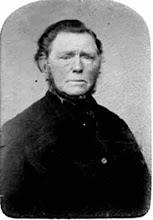Re-writing History
17 July 2008
Page 16 of the book “The History of the County of Middlesex”, Chapter II, the first line reads:
“The Indian, being without a literature, knows nothing of his origin.”
There are so many things wrong with that statement, I don’t even know where to begin.
As a child growing up in London, what little local history I was taught, all came from the perspective of John Graves Simcoe landing at the Forks of the Thames river in 1793, and from that point on, “history begins.”
Ahem.
In 1789, Lord Edward Fitzgerald and black explorer Tony Small stood at the forks of the Thames River, although at this time it was still called “La Tranchee” by the French. What I find amazing is Lord Fitzgerald is writing letters home to Europe from Fort Erie and Detroit at this time, and you can buy a book even today that reprints his correspondence. There is a lost campsite I would love to locate, somewhere along present day Hamilton Road, out near Putnam, but that’s a story for another day.
But the point is, there is enough people and infrastructure in place four years before Simcoe stands at the Forks to send mail home to Europe. It would be very slow, and very costly, but you could still do it.
The pre-British history of London is, in my opinion, very poorly understood. Part of that is due to British attitudes themselves. The Anishnaabe of our area (or Ojibwa, Chippewa as they are called in English) do have an oral history and someday I’ll get into that, but his whole area, but British attitudes were quite literally, that these people were “savages” and their own history and culture was unimportant. One of my ancestors was raised as a child by the Annishnaabe on Walpole Island almost 200 years ago, and I’ve grown to appreciate the culture and the language. I find Ojibwe/Ojibway difficult to learn, but also relaxing, and I find great insight into the culture and history by learning the language, but more about that some other day too.
Not just London, but the whole of south-western Ontario from the Grand River to Detroit is amazing in it’s past, and one of the things I hope to do over time is open eyes to that history.
One last bit of “re-writing” history is the question, what is the oldest part of London? It may appear that the Forks of the Thames takes that honour, but not so. We are not 100% sure, but as an educated guess, the River Bend area of the western edge of the city, where the Oxford Street bridge crosses the river, is quite possibly the oldest known area of European settlement inside current city limits. It is also very old in terms of native settlement too. Many of the first spots early European settles choose were next too early native settlements. That’s another long story too.
There are some spots along both Commissioners’s Road and Hamilton Road that are also very old, and either pre-date the War of 1812 or are at least as old as 1812. These include, but are not limited too the Brick Street Cemetery on Commissioners’s Road, the Bostwick Cemetery on Hamilton Road, and the area of Hamilton Road near Pottersburg Creek and the whole Meadowlilly area.
It is not well known in our area that parts of Hamilton & Commissioners’s Roads are hundreds of years old. Jesuit records from circa 1640 indicate that the “Neutral Indians” ( a name I disagree with, but again, another long story) launched a war party of over two thousand warriors down to the “Fire Nation” (modern day Michigan) from this area. So we know the road or trail as it existed at this time was of some substance, otherwise, you don’t move that many men too easily.
We can only speculate that not only have parts of Hamilton & Commissioners’s Roads existed since the French records of 1640, but are even much older that. How old? I don’t know. A thousand years maybe? Perhaps, and perhaps even older. There is one pre-historic archaeological site just south of the city, but north of lake Erie that is estimated to be in excess of 8,000 years old. Some other sites are estimated to be closer to 10,000 years old. Yes, older than the Pyramids or Stonehenge.
It’s facts like this, that makes me wonder, just how old is Commissioners’s Road?
Have a good one
joe
Thursday, July 17, 2008
Subscribe to:
Post Comments (Atom)

2 comments:
What evidence do you base the riverbend theory on ?
Curious ... I live in the area and have discovered some interesting artifacts.
With the ReThink London stuff underway, perhaps it is time for you to start blogging again. Enjoyed you this piece, will try to find more. You should tell your 'long' stories and the link to them.
Post a Comment